Mechanical Dive Watches Have a New Flagship with The Omega Seamaster Planet Ocean Ultra Deep Titanium 6,000m (Live Pics & Price)
Barely less resistant than the prototype that made it to the Deepest Point of the Globe…
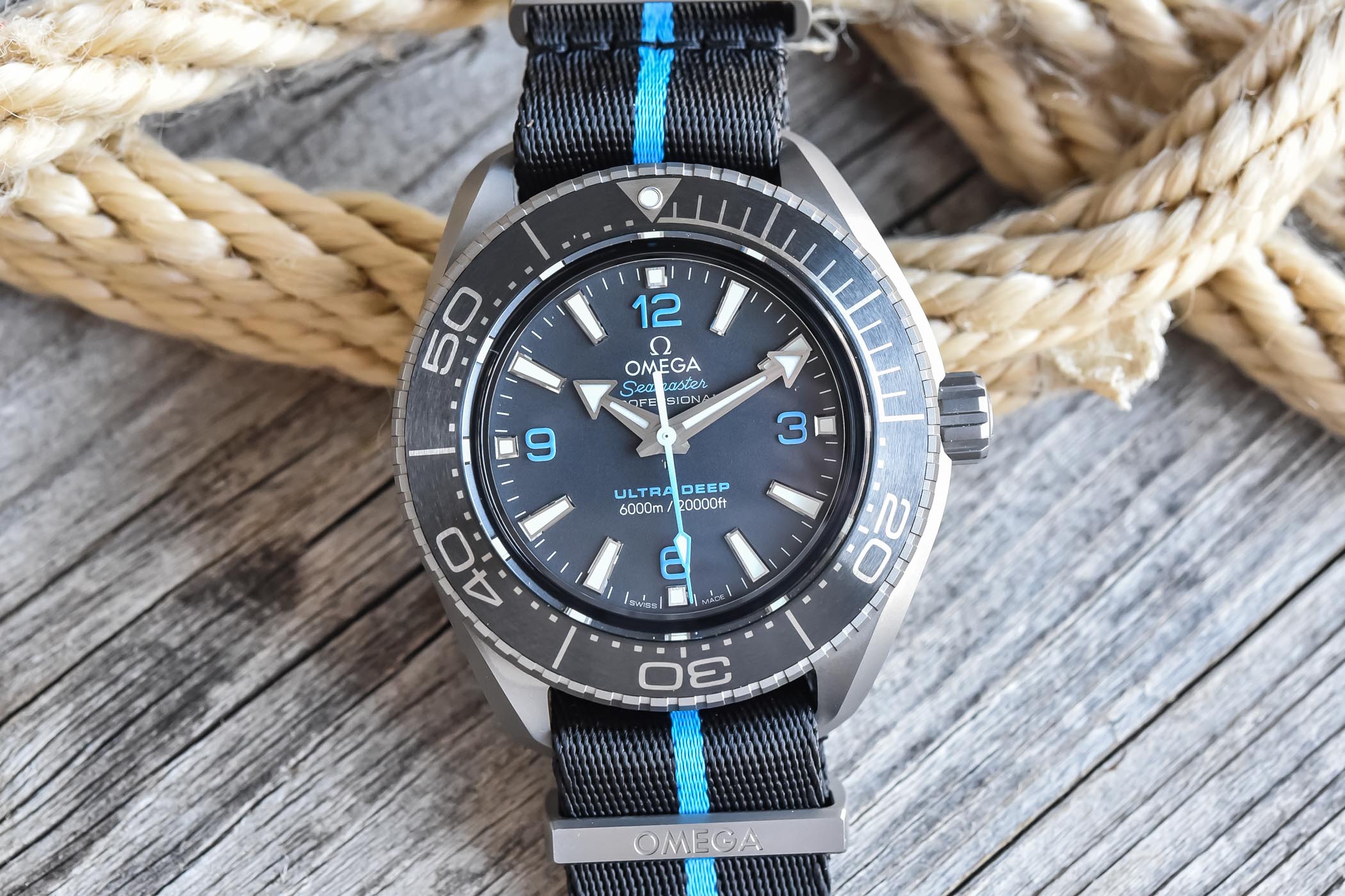
The Seamaster, a collection born in 1948, is the most enduring range produced by Omega. Born as a child of peace, yet with military-tested technology, the diving-oriented lineup has since been the perfect vehicle for experimentation and innovation, constantly pushing the limits of water-resistance, but also of materials, metallurgy and technology. A couple of years ago, Omega presented the Planet Ocean Ultra Deep Professional, a innovation-packed prototype that happened to be a record-breaking watch, with 15,000m water-resistant, and field-tested a whopping depth of 10,928m, when it reached the deepest point in the ocean during the Five Deeps Expedition to the Mariana Trench. Today, the brand presents the commercial version of this watch, a barely-downgraded model with a complete steel collection and this, the Omega Seamaster Planet Ocean Ultra Deep Titanium, with an impressive 6,000m water-resistance.
The Seamaster, from Lake Biel to the Mariana Trench
The story of the Omega Seamaster, which we’ve covered extensively in a series of videos named The Seamaster Chronicles (part 1, part 2, part 3), started in 1932, with the creation of the Omega Marine, a watch that is now considered the first watch entirely dedicated to underwater activities. Omega created a watch with cork seals and a double-case construction that clamped tighter as external pressure increased. The watch was tested in Lake Biel (where Omega is headquartered) and even managed to resist a pressure of 13 bars in laboratory.
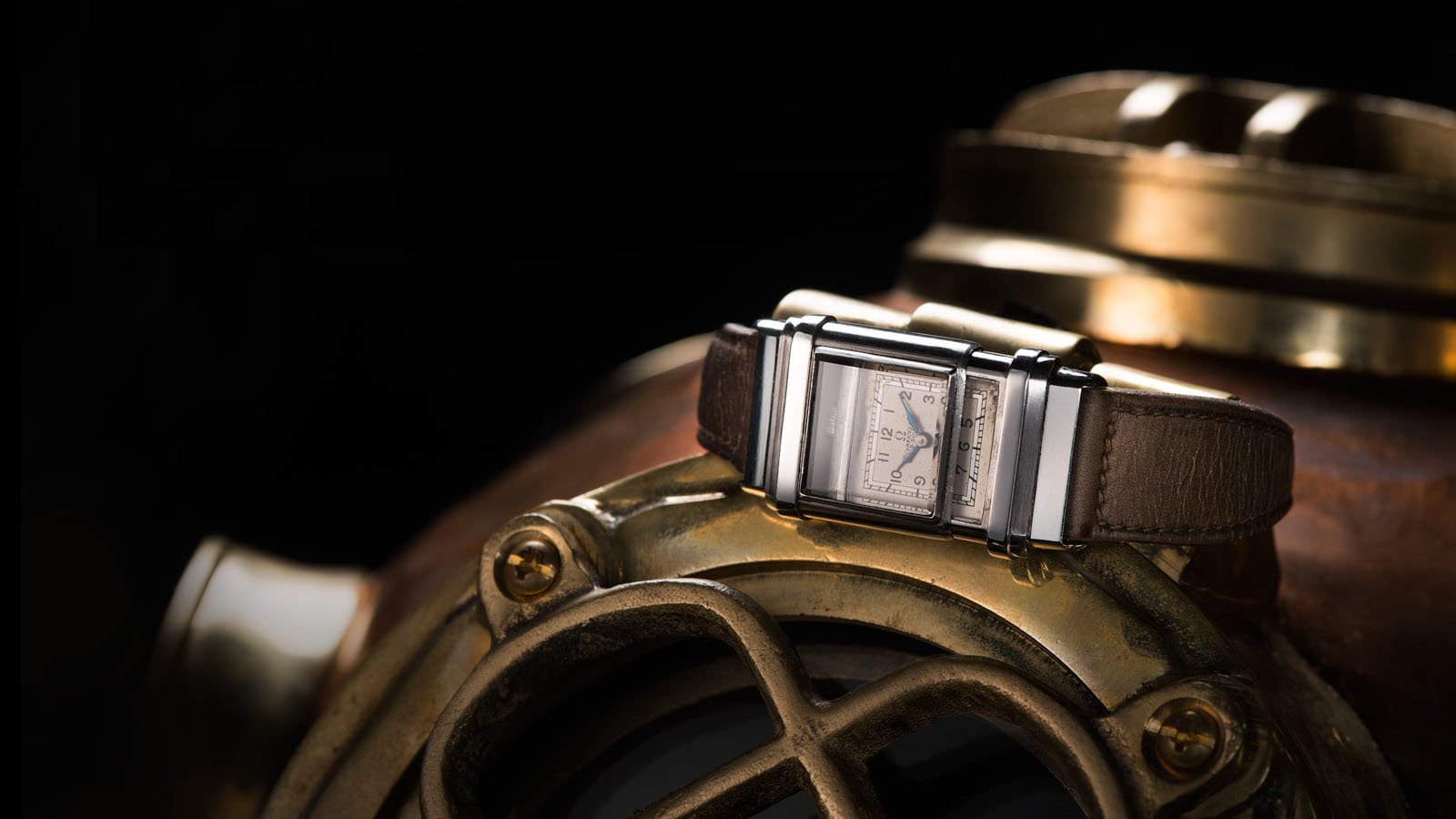
In 1948 came the first watch with the Seamaster name, the CK 2518, commemorating the brand’s 100th anniversary. A strong evolution over the original concept, this watch was dedicated to the general public, yet relied on the technology used by Omega during WWII, with its field watches. The Seamaster, however, was not entirely dedicated to underwater activities and was seen as a more robust, more resistant take on the classic watch designed for town, sea and country, as a dustproof and waterproof watch.
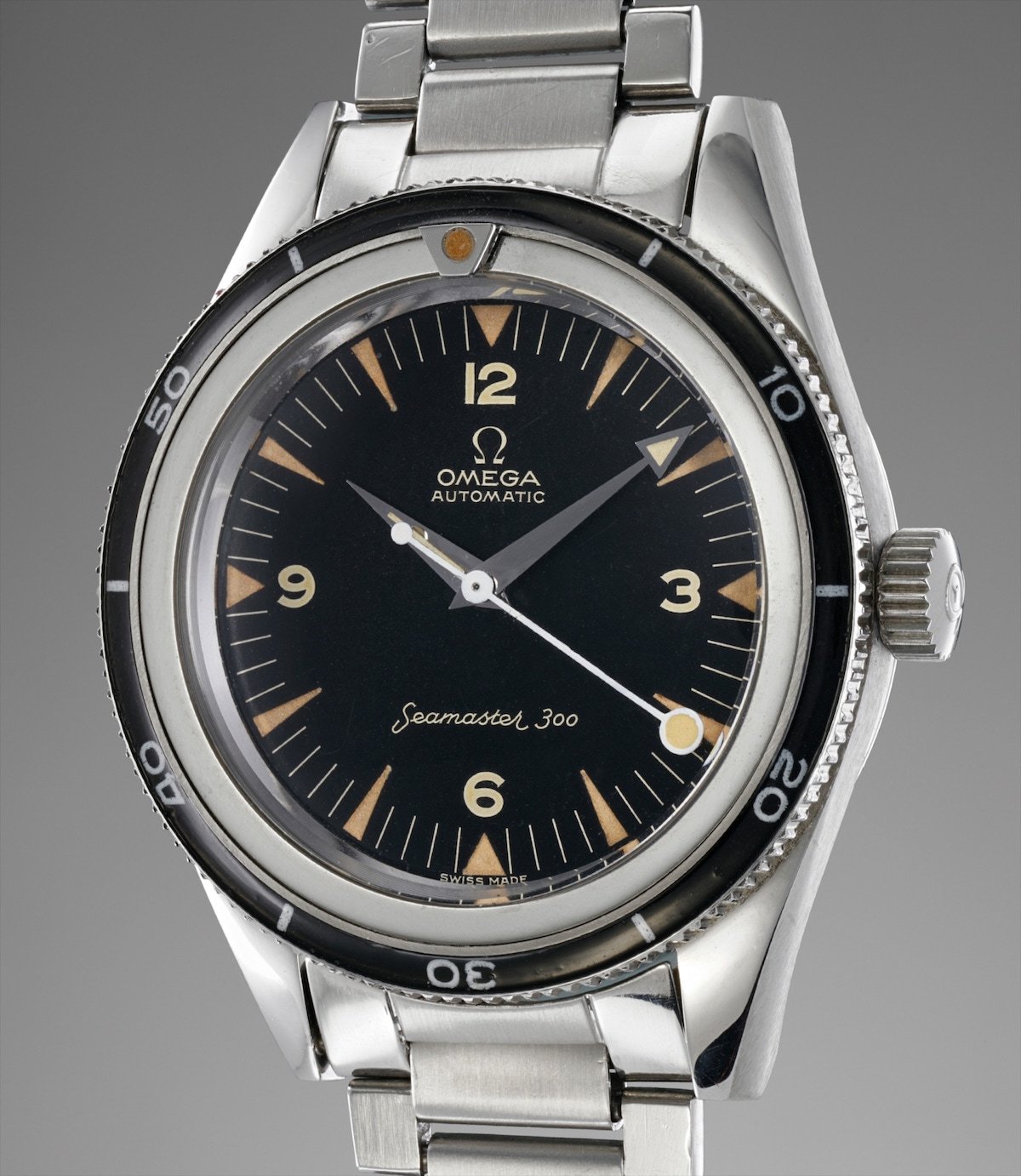
While Blancpain, Rolex and more presented the first true dive watches in the early 1950s, Omega waited a bit more to enter the race, which was done in 1957 with the Seamaster 300 CK 2913, as part of a trilogy of professional models. The Seamaster 300 was the real deal, with impressive water-resistance, rotating bezel, luminous dial, well-protected case and, importantly, it was a watch resistant to helium even before saturation diving was known from a wider audience – ps. it was developed intentionally as such but still managed to be compliant with saturation diving.
Then came important watches, such as the Ploprof 600, a true beast of a professional dive instrument, which is now known as the first watch made of 904L stainless steel – then named Uranus steel. This requirement was a necessity for professional divers welding underwater since 304L steel would rust in seconds next to such activities. This once again demonstrates Omega’s mastery in the field of metallurgy.
Following this, Omega quickly became one of the definitive names in the field of dive watches. The most recent prowess of Omega isn’t a small one, and its named the Planet Ocean Ultra Deep Professional. This prototype, made in 3 examples, made using impressive technology shared with Five Deeps Expedition’s submarine, was created to withstand up to 15,000m of water and has been field-tested in May 2019, when the expedition reached the deepest point of the Globe, Challenger Deep in the Pacific Ocean – at a depth of 10,928m, at the bottom of the Mariana Trench – with pilot Victor Vescovo.
Omega being Omega, they thought it would be a waste not to offer at least some of this technology to the general public. And as such, the brand releases what’s one of the most impressive mechanical dive watches on the market, a watch that shares most technical and visual elements with the prototype mentioned above, a watch capable of resisting 600 bars of pressure (a depth of 6,000 meters), the new Seamaster Planet Ocean Ultra Deep Titanium – and because one good news never comes alone, the same technology is also presented in a stainless steel collection, intentionally named O-MegaSteel. But more on that in a dedicated article to come.
The new Planet Ocean Ultra Deep Titanium
As said, this new Omega Seamaster Planet Ocean Ultra Deep Titanium is basically a slightly scaled-down version of the watch that made it to the deepest point underwater. As such, most of the design and construction elements have been reused in this context. And that makes this titanium edition quite a special, over-engineered piece.
The case is made of sandblasted grade 5 titanium. And to achieve such a water-resistance – 6,000 metres of 600 bars (and add to that 25% of safety margin, meaning in reality watches tested to 750 bars) – some concessions had to be made, and some technologies had to be invented. And most actually come from the innovations found in Five Deeps Expedition’s submarine. The Planet Ocean Ultra Deep is a large watch, measuring 45.5mm diameter, 18.12mm height and 56mm lug-to-lug. No doubt, it is something of a tool that is made for a purpose. Not a watch for business – or at least, not the kind of business you do at the office. Serious underwater business maybe… The case is built around the design of the record watch too, sharing most shapes and style cues, such as the built-in Manta lugs and streamlined asymmetrical case.
The case is made of sandblasted grade 5 titanium all around – case, caseback, bezel and crown. The surface is entirely matte, and it is topped by a unidirectional bezel with a matte brushed ceramic insert. The scale is obtained by the seamless Liquidmetal technology and is executed in silver-grey. To obtain such as water-resistance, the watch is equipped with a 5.2mm sapphire crystal with a semi-conical shape, allowing it to withstand the pressure with optimal stress distribution. The same concept is applied to the crown – that screws in, of course – and the caseback. Altogether, there are 4 patents pending for the construction of this case. As you can see, this watch doesn’t feature an HEV, which wasn’t needed due to the helium-resistant construction of the case.
The caseback is titanium too and screwed to the case with a two-part construction – the caseback itself and a ring to seal the assembly. It is laser-engraved and laser-coloured with a classic seahorse logo and a sonar pattern and the engravings will be aligned on all watches. The sapphire crystal on top is also a new development, named EFG. Not only its shape is unique but the material itself has been carefully selected to be free of all flaws, in order to make sure no particles or micro-cracks could cause troubles with the pressure.
The dial of the new Planet Ocean Ultra Deep Titanium is also clearly in line with the 2019 prototype. Made of ceramised titanium, it shows applied and brushed hour markers and hands, as well as cyan blue Arabic numerals. Note that the central seconds hand has a gradient blue effect on its top surface. The display is classic, with central hours, minutes and seconds, and no date to disturb the clean look. Note that this watch is ISO 6425 certified, and that this certification has been integrated within the Master Chronometer tests by METAS. The dial, like the rest of the watch, is entirely mattified to avoid reflection and create the required instrument look that goes in line with the specifications of this truly monster of a dive watch.
Inside the case is the in-house calibre 8912, an automatic in-house movement with Master Chronometer certification, two barrels, co-axial escapement and, of course, the usual ultra-magnetic-resistance Omega has come to offer on most of its watches. The movement runs at a 3.5Hz frequency and boasts 60 hours of power reserve. Nothing spectacular here, at least regarding Omega’s drastic standards.
The Omega Seamaster Planet Ocean Ultra Deep Titanium is worn on a black and blue NATO strap made from polyamide yarn, sourced from 100% recycled fishing nets. It is fixed to the wrist with a loop and buckle in grade 5 Titanium. This strap is specific to the titanium model and won’t be available on the steel collection – mostly because of the Manta Lugs, no other option was possible.
The Omega Seamaster Planet Ocean Ultra Deep Titanium 6,000m is a truly impressive watch. Useful? Not really. Over-engineered? Clearly. Impressive? No doubt it is one of the most striking professional dive watches on the market. And just because of that, it sure looks cool. As long as you’re aware of its size on the wrist.
Availability & Price
The Omega Seamaster Planet Ocean Ultra Deep Titanium (ref. 215.92.46.21.01.001) is launched as part of the permanent collection and will soon be available, at a retail price of EUR 12,900.
For more details, please visit omegawatches.com.

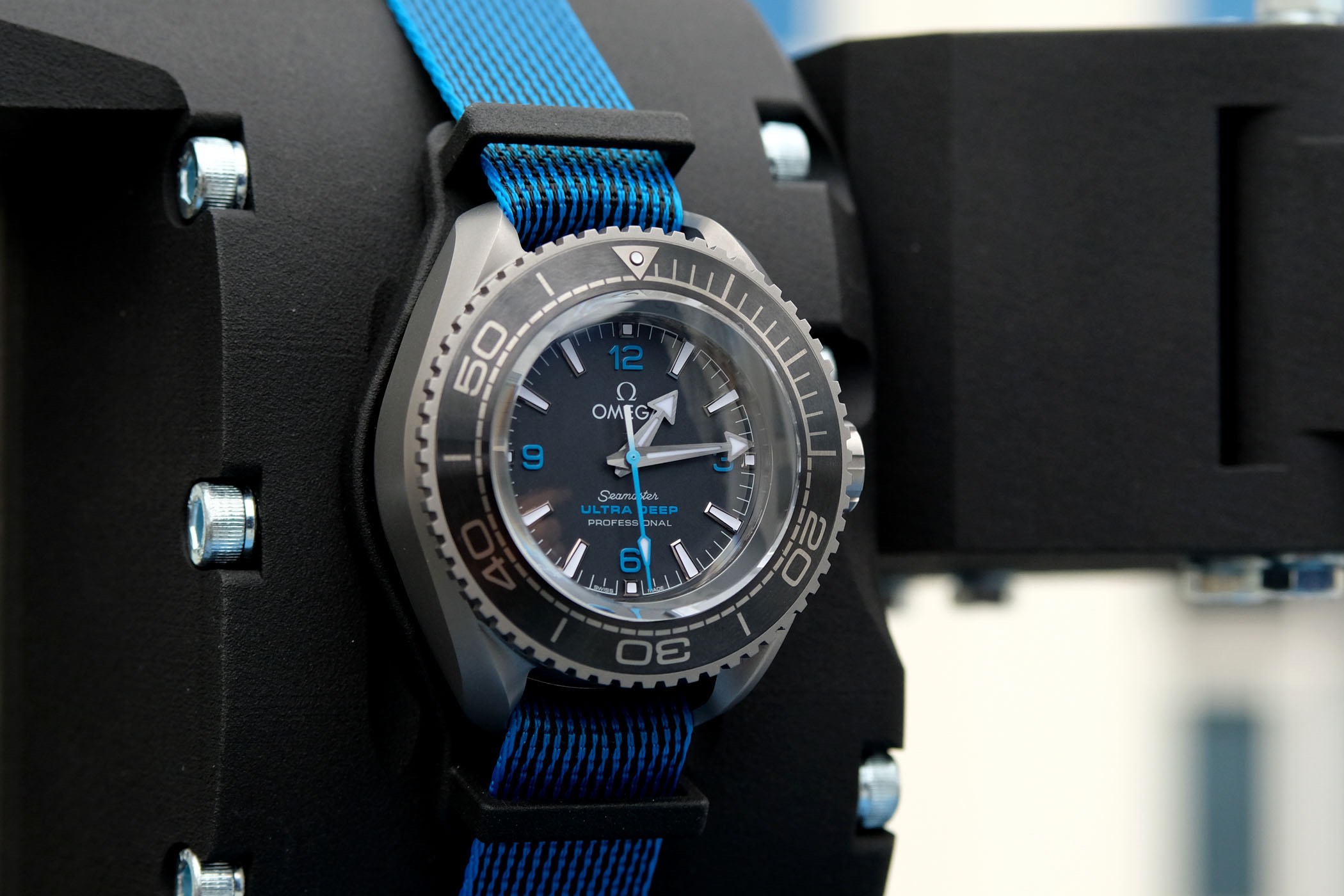
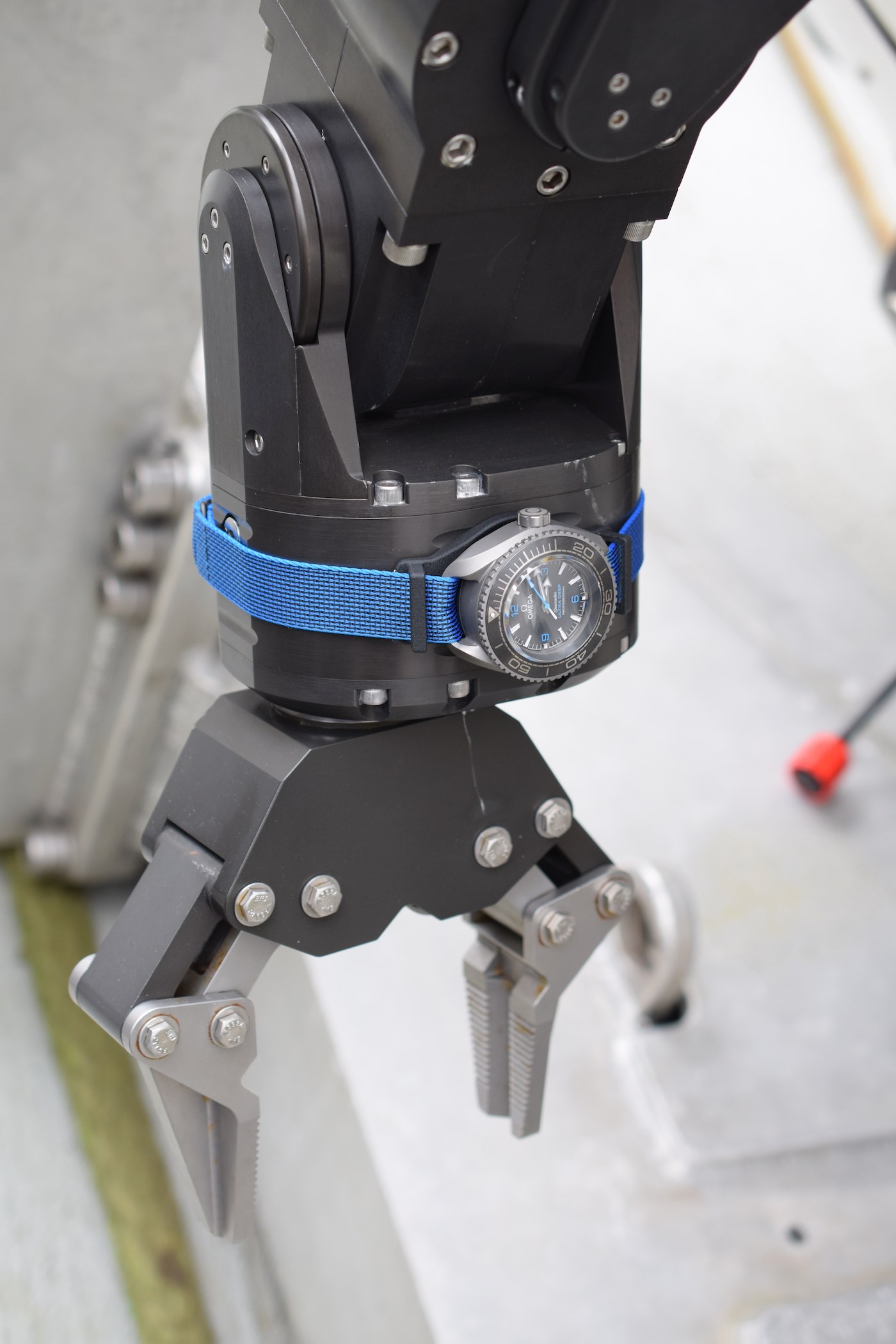
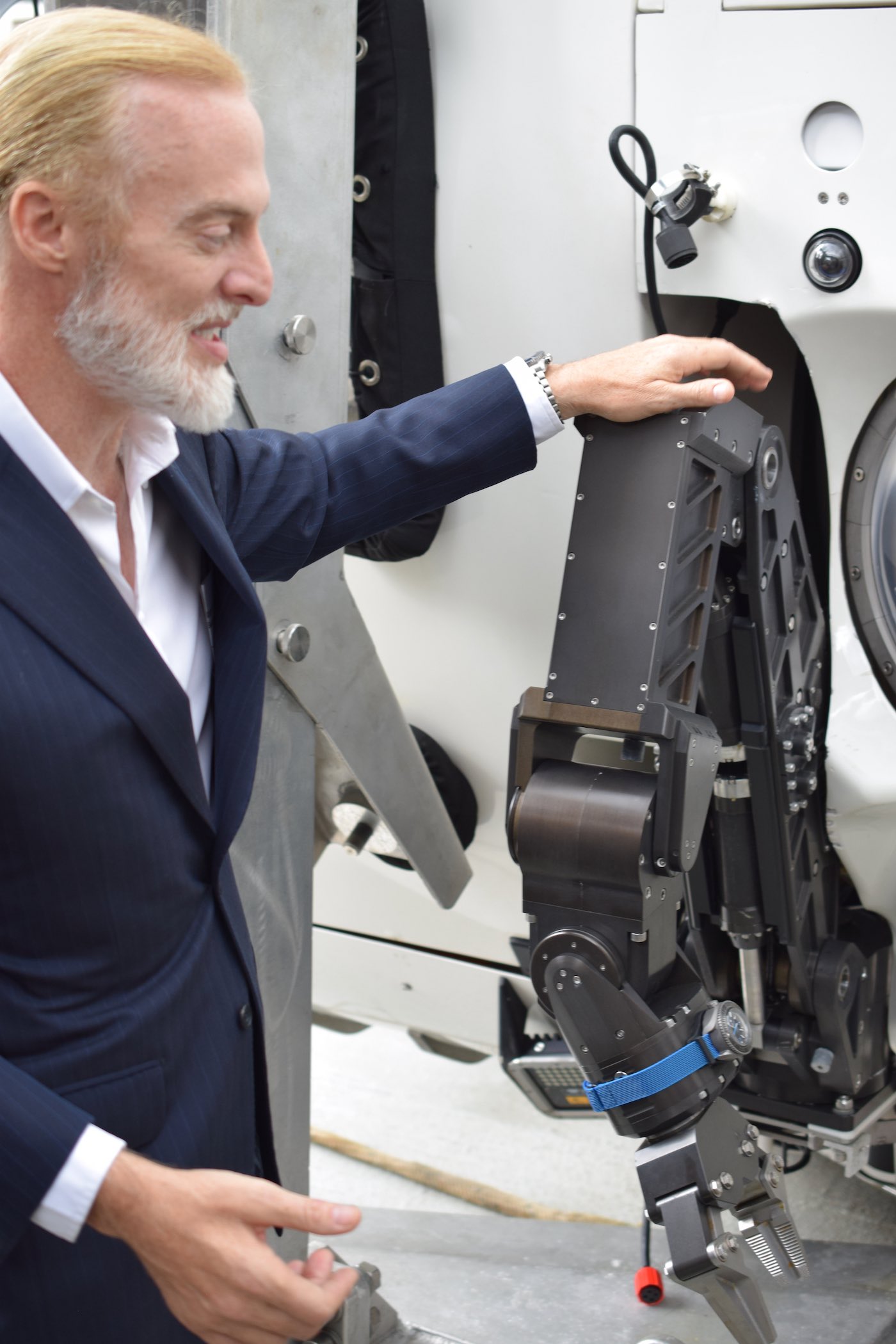

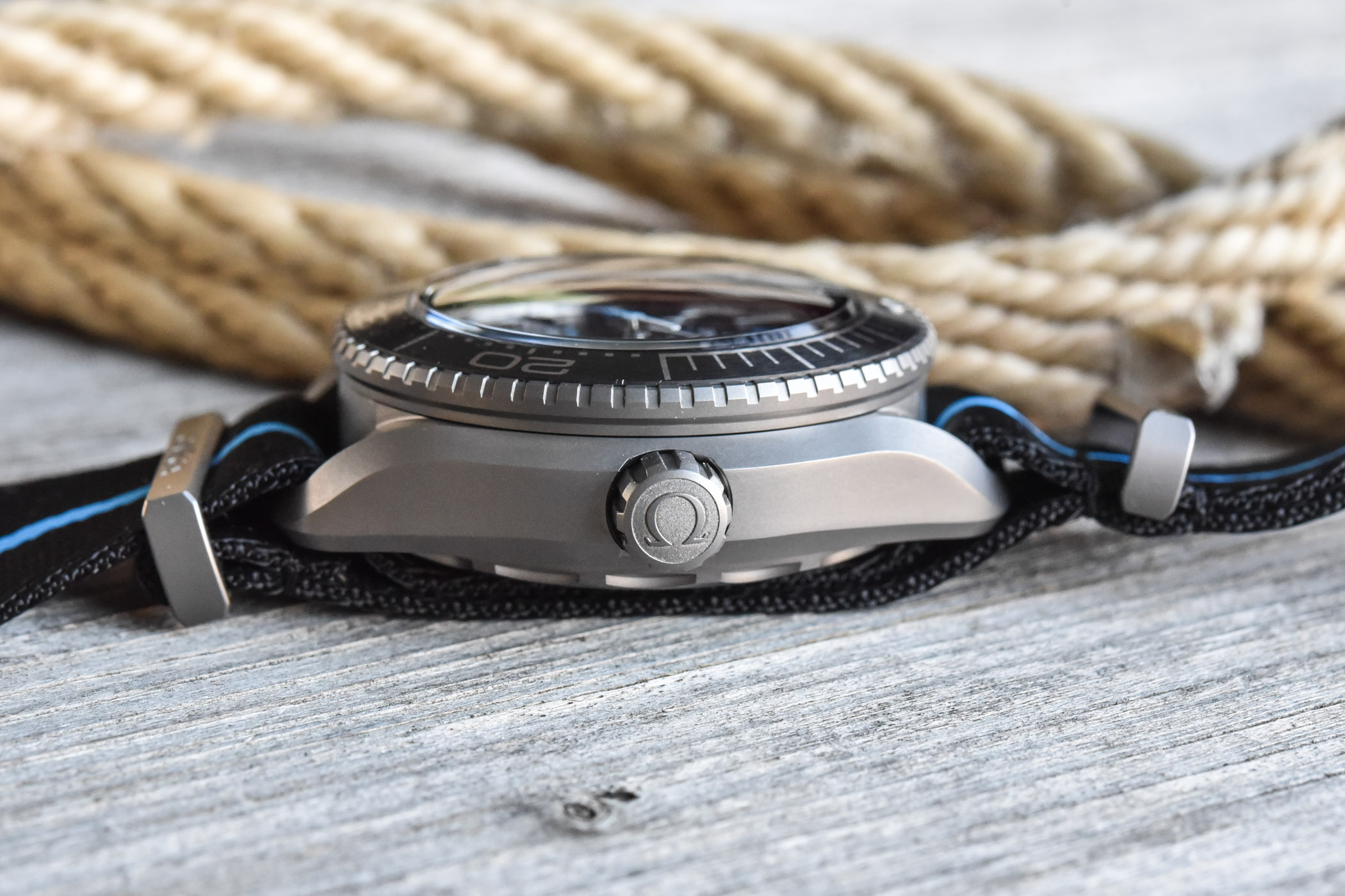
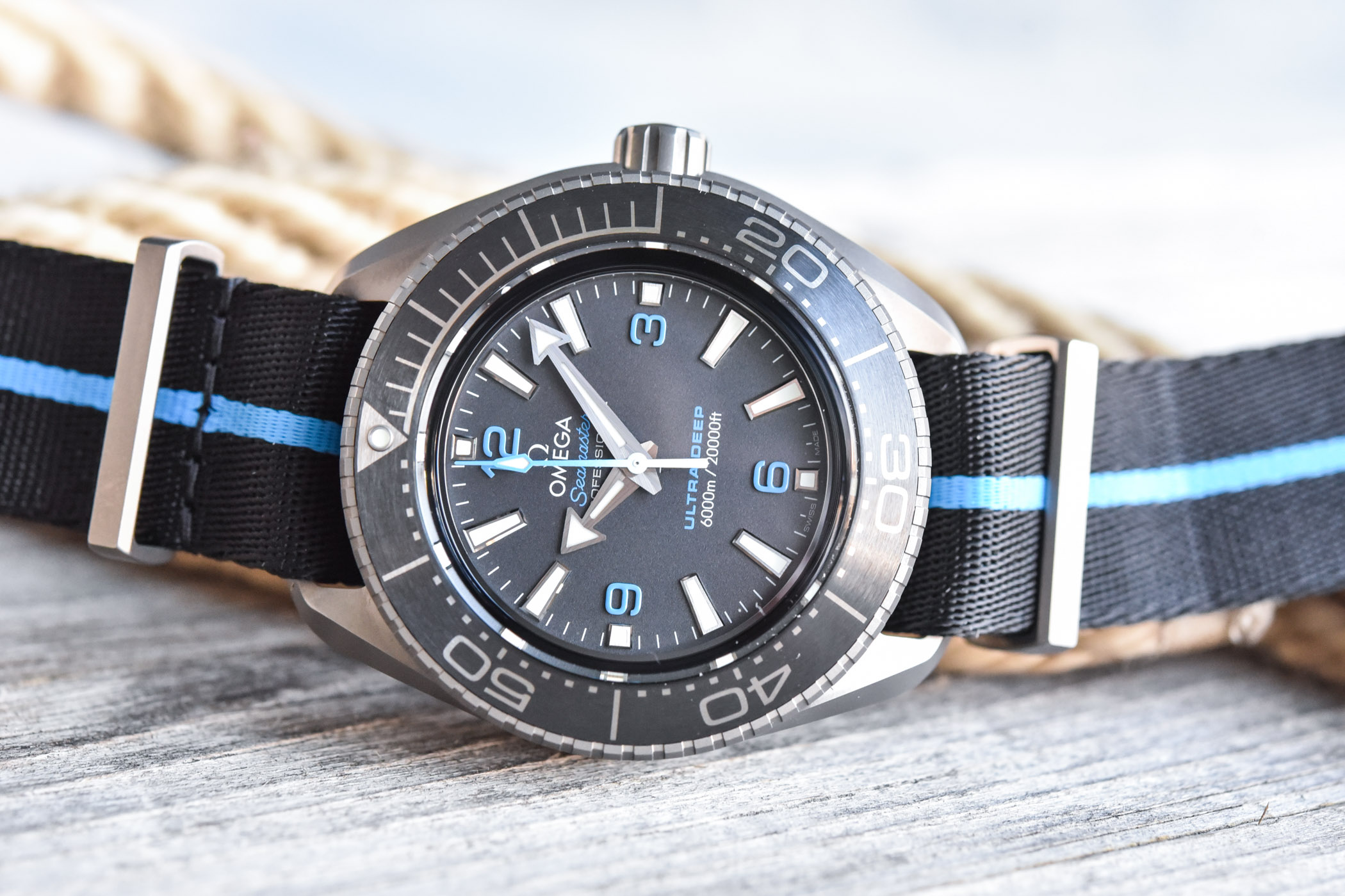

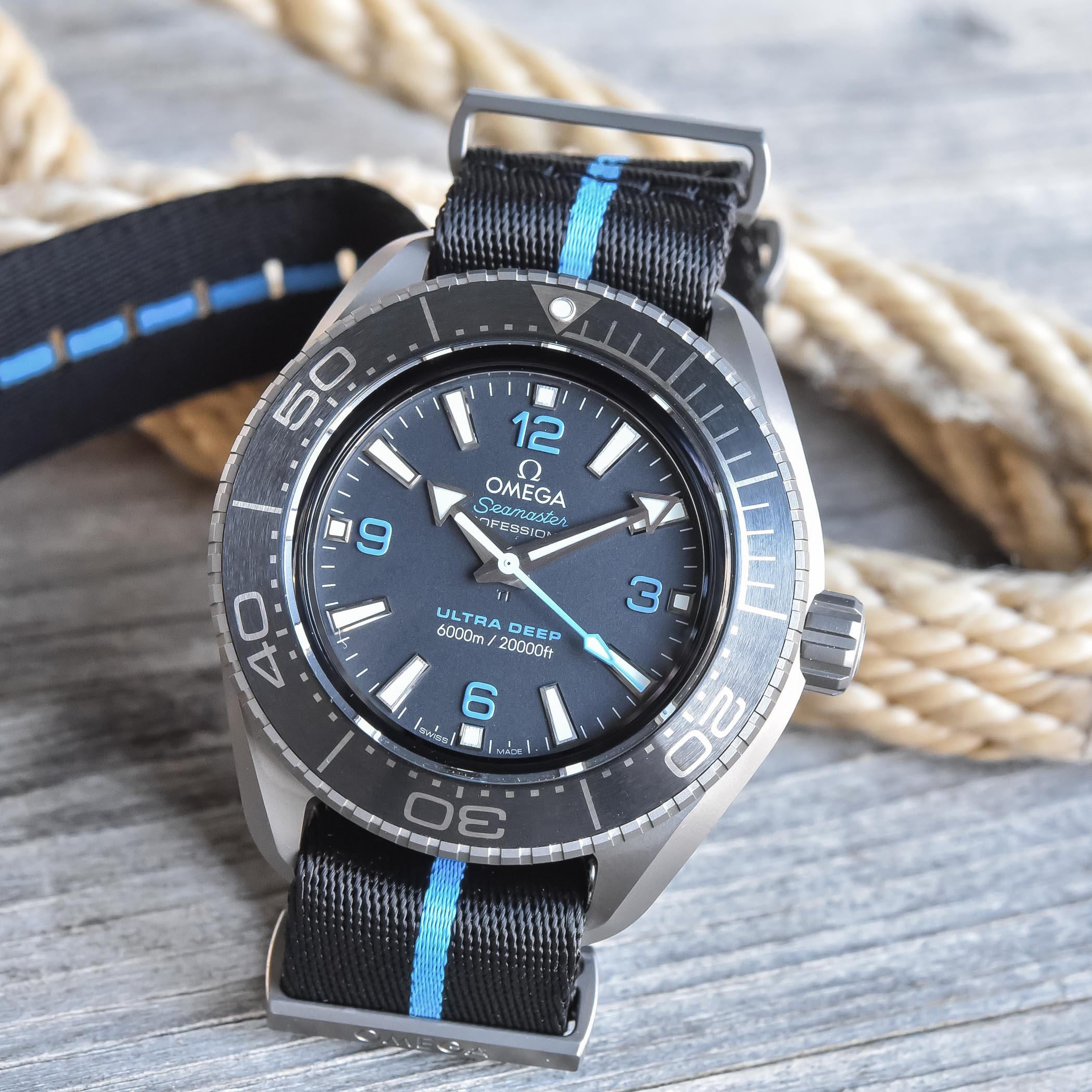
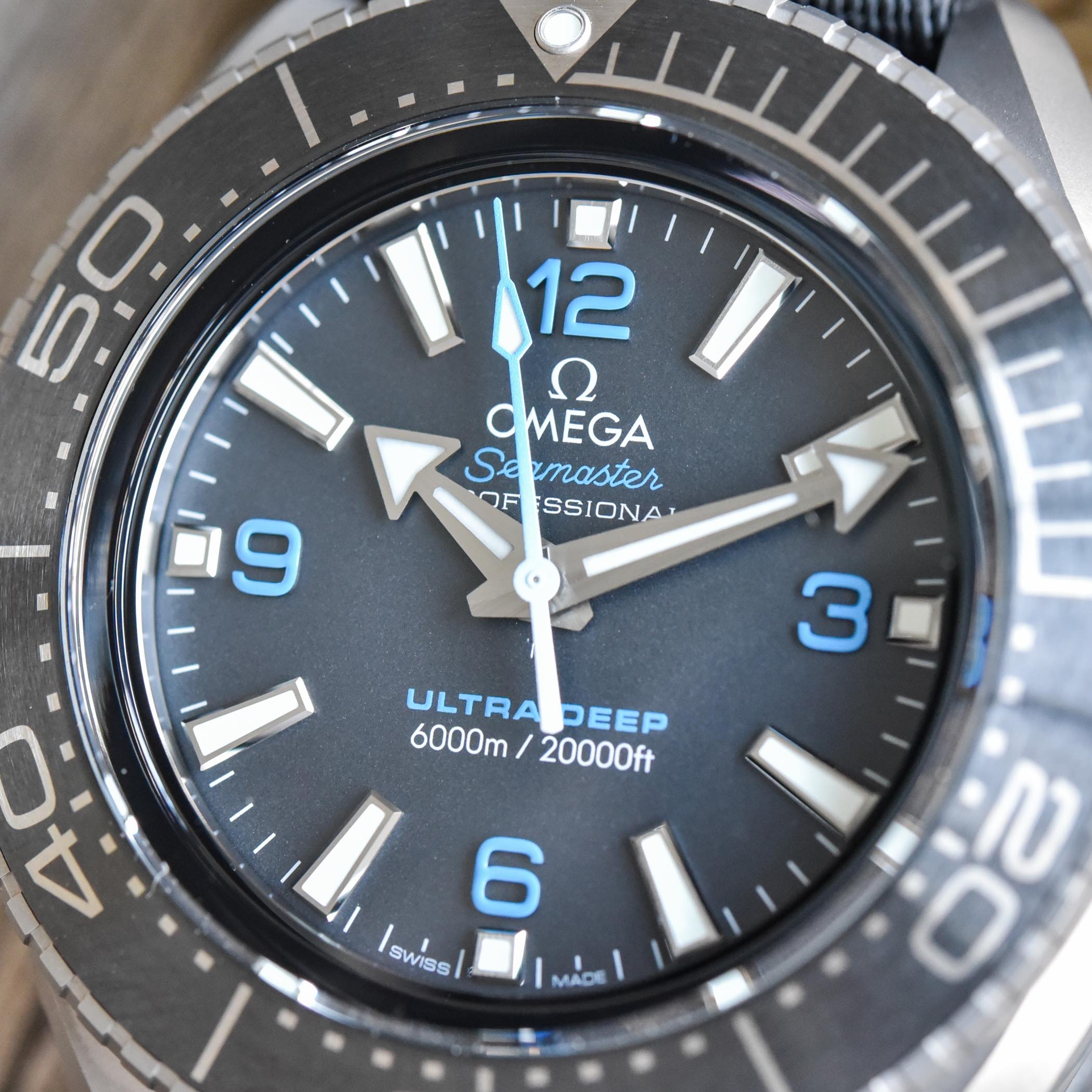
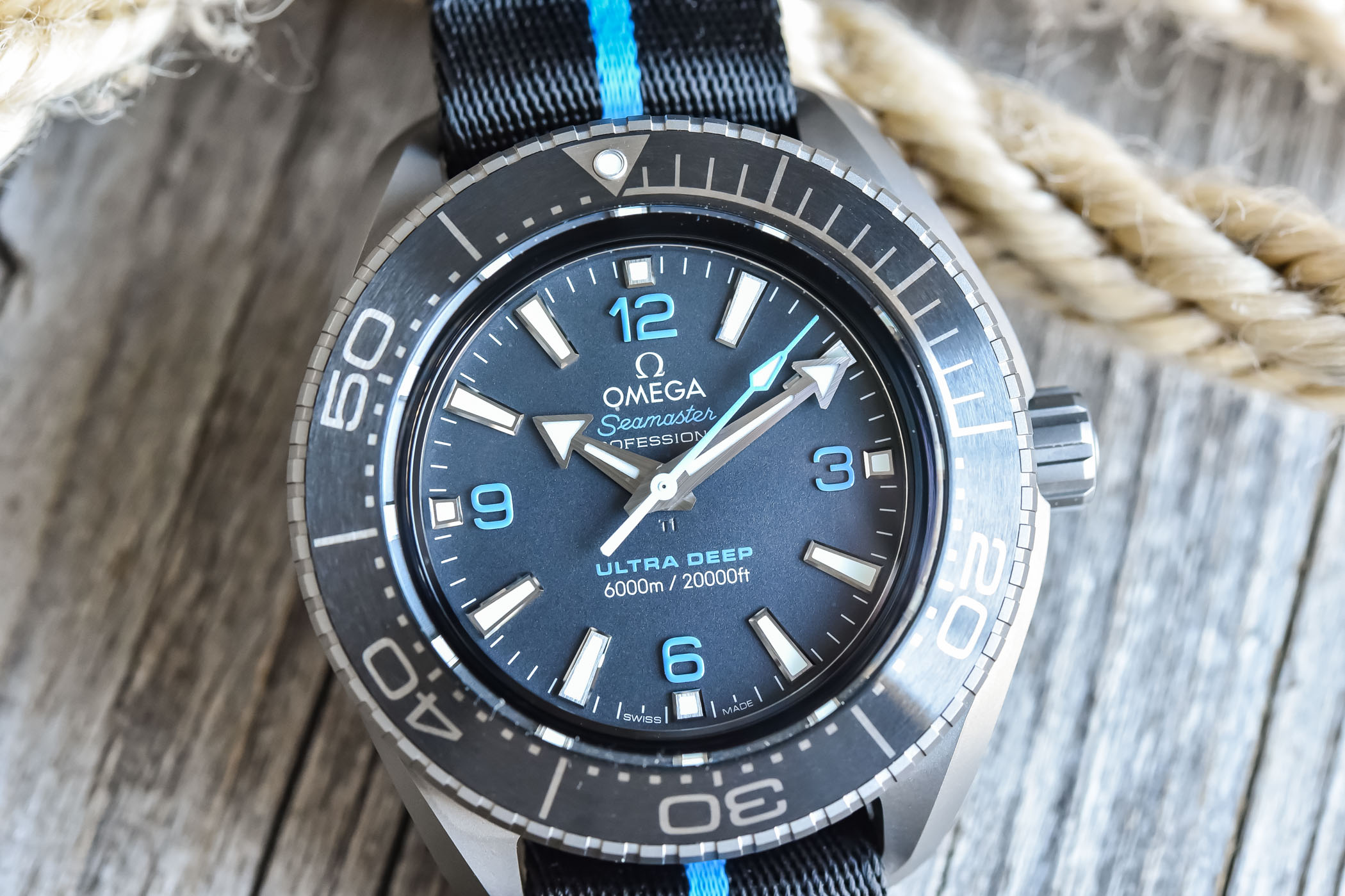
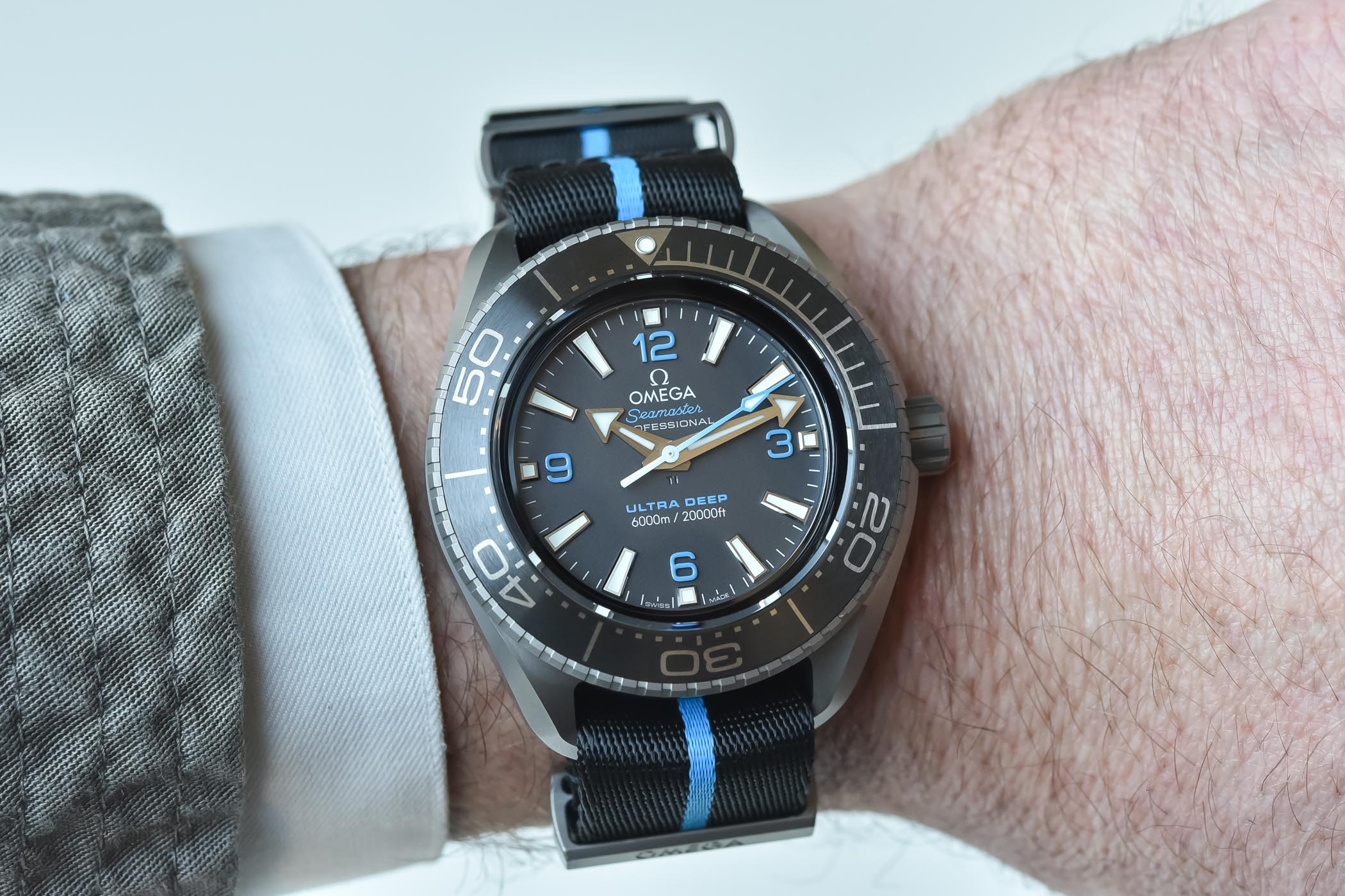

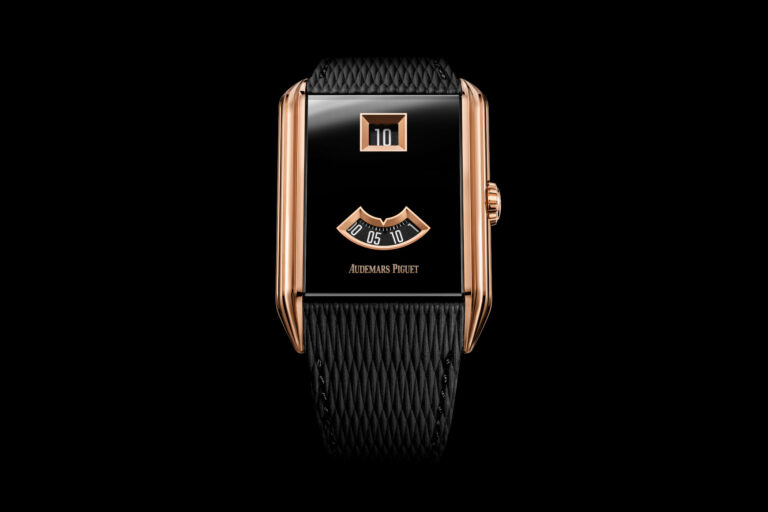
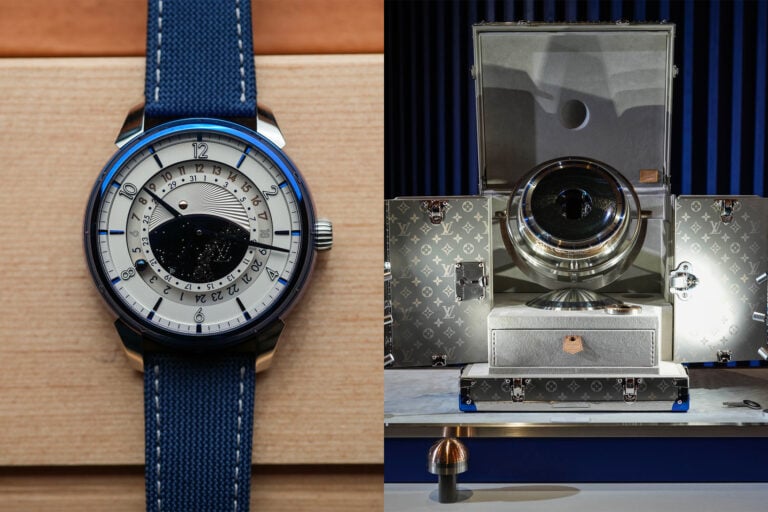
2 responses
Now, that’s a watch. Perfect for what it is ment to do. Beast of a watch no doubt but as you mentioned it is not for the everyday type of thing. Omega has done it. Of course as everyone I would love to see that exactly watch scale down to 42mm – 43mm and no more than 15mm of thickness, if they add and their chronograph that would be a dream watch for me. That would be a true everyday watch for everyone and it would sell like crazy.
Thank you for an “in depth”, pun intended, of the Planet Ocean Ultra Deep. I have very strong suspicions that Omega will introduce a revised and slimmer Planet Ocean 600M later this year. As it is the 80th anniversary of the Omega Marine, arguably the first ever divers watch, Omega seem to be gearing up to make 2022 the year of Omega diving watches. I expect to see a new Marine watch this year too, very similar to the Museum re-edition from 2007/2008. There are also strong rumours of a new stainless steel PloProf as well. I fully expect Monochrome to provide the best coverage of the Omega releases throughout the year.